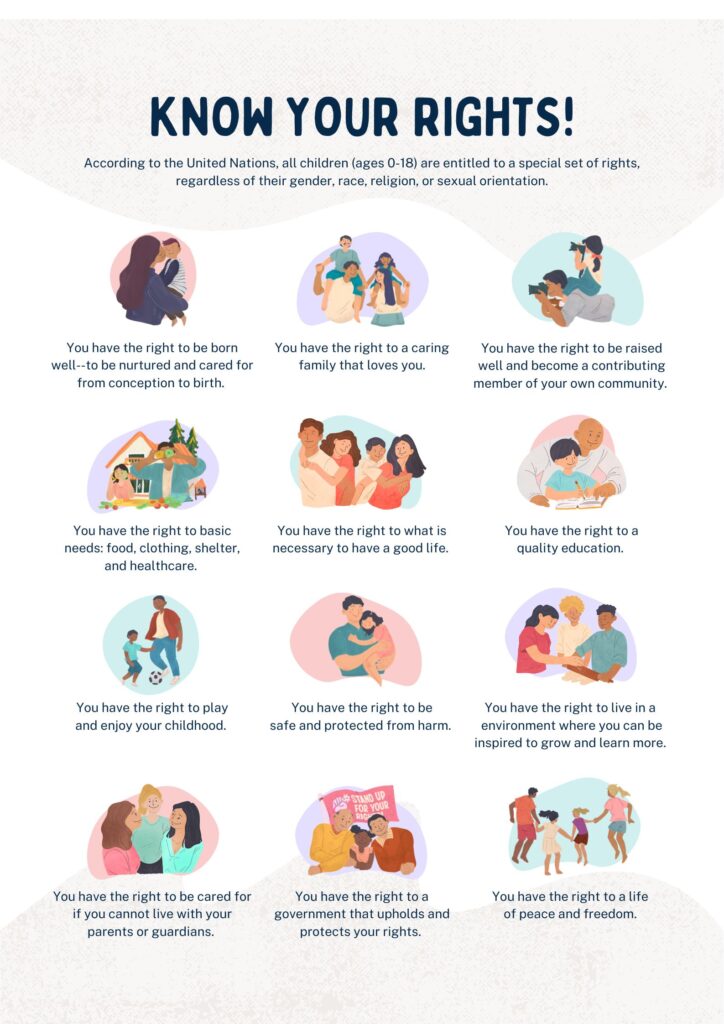Special education is public education that has been designed to provide customized instruction for students with disabilities. The goal of creating this type of program is to deliver a free and appropriate public education and still meet the unique needs of each student.
The law states that all eligible students must be in a public school program. Also, there are certain rights for parents and students with disabilities. Receive the evaluation in the least restrictive environment and still be able to meet the needs of each child.
The type of education, the coordination with other service providers, and the setting of goals are all responsibilities of schools with special needs.
Students with disabilities do not differ from those without disabilities. Both have abilities and limitations beyond their years, abilities that may be difficult to diagnose. Let’s explore some benefits of special education, when they learn and how they learn.
objectives of special education
- Identify the student’s learning needs
- Create an appropriate educational program
- Assist the student in benefiting from the general education curriculum
- Promote access to appropriate community resources and organizations
- Provide a positive self-concept and encourage motivation
- Create a positive environment in which the student can work and learn with peers who do not have disabilities
- Assist parents in understanding their child’s disability and assist them in participating in the education of their child
Types of special education
There are many types of special education. We can categorize them:
- Auditory-impaired education
- Physical and motor disability education
- Visual impairments-Partially sighted or blind education
- Emotional disability education
- Additional support for regular classroom settings
- Severe special educational needs education
- Autism Education
- Deaf-blind Education
- Down syndrome Educational needs
- Multiple disabilities Education

benefits of special education
Students with disabilities often have many needs throughout their education. We can address many of these needs with the help of specially-trained teachers, aides, and school psychologists.
However, different students have different learning styles and require different teaching strategies. Here we’ll discuss the benefits of special education.
1. Helps Children Focus On Their Challenges
Having a disability can discourage children. Many students with disabilities feel bad about themselves and stop doing what they want to do.
At this time, students may see the world as a scary place. With special education, children will learn how to cope with the challenges of being different.
2. Leaves Them More Adaptable to Change
Students with disabilities should try activities and pursue opportunities that aren’t typical for them. These students also need to interact with their peers regularly, both those with disabilities and those without. Special education can help prepare students for the future.
3. Helps Children Work Better Through Collaboration
Special education can help students become more independent. Smaller groups, co-teaching, and team projects prepare students to be adaptable as they enter adulthood. Special education also helps students focus on the positive aspects of their disability rather than the negative ones.
4. Improves Social Skills
Students with disabilities often struggle to make friends. Special education can help students learn how to interact with others and be successful in a social environment. This helps children feel confident as they move into adulthood.
5. Fosters a Sense of Pride and Motivation
Developing a creative project or accomplishing a difficult task can be an excellent way to build self-esteem. Special education may help students set realistic goals, plan their time, and then accomplish what they set out to do.
6. Provides an Opportunity to Learn New Skills
As the above benefits of special education, students with disabilities can learn new skills in a variety of areas. We can also teach them to take pride in their abilities and how they learn. Special education is the only way to give students with disabilities the opportunity to succeed.
7. Less risk of stigma
Stigma means a mark of disgrace associated with a particular circumstance, quality, or person. A stigma can be real or imagined. In the past, it segregated many students with disabilities from their peers and called them names. These are not acceptable anymore.
Today’s society accepts differences and those with disabilities can have normal lives. The benefits of special education are many and gratifying for the students themselves. So, it’s a great advantages of special education.
8. Access to other services
Students with disabilities can gain access to services through community resources, such as the local community center. They can also apply for job training and rehabilitation services.

9. Offers specialized support
Special education supports the needs of students with disabilities and the needs of their families. Students may receive speech therapy, occupational therapy, and counseling.
10. Helps Children Grow Comfortably
It can mainstream children with disabilities into the general education classroom. The benefits of special education are many as students can take part in a variety of activities, including field trips and extracurricular activities. Special education is just one way to meet the unique needs of students with disabilities.
11. Helps in Fulfilling Individual Educational Needs
Special education benefits comprise the individualized needs of students with disabilities. It is necessary for the successful education of children with disabilities.
The special education approach to education can help students learn at their own pace, and take time for them to understand and develop skills through various settings and opportunities.
12. Capitalization of Human Resources
According to WHO, there are 1.6 billion disabled people in the world. Society takes it lightly and neglects it most. Therefore, their caretakers are not given the training to take care of them.
Special education can help train special needs teachers and those who will care for disabled people in the future.
13. Encouraging Towards An Inclusive Society
An inclusive society means a society in which people of all different abilities can fully take part. We should give everyone the same opportunity to learn, work, and live how they want to live.
Special education is one way by which environments can become more inclusive for people with disabilities.
14. Promotes Unique Talents
Students with disabilities often have unique qualities of their disability, such as musical talent or artistic talent. With special education, students can develop their talents without being ostracized for them. We should give them the time and space to become who they are.
Conclusion
Special education for special needs is vital for the growth of a child’s learning. Children with disabilities usually need more help in school and no one should be allowed to leave school unless they are truly ready.
Therefore, it is necessary to develop and implement the right programs specially tailored to each child’s needs. We should provide special Education to maintain the balance between the individual’s needs and their environment.
Not every child will require special education, but we need it in the right circumstances and there are many benefits to providing it. Without special education, most individuals with disabilities could not take part in society and to the fullest extent, enjoy their education the way they should.
Special education is an important tool for those who may have learning difficulties that are not clear to others. That’s it for this article about special education. We hope you find the Benefits of Special Education informative and insightful. Thank you for reading.
Learn More 20+ Advantages Of Co Education System In School And College Life 15+ Advantages Of Formal Education | Complete Guide 28 Benefits Of Art Education In Schools | Why Is Art Education Important What Are The 32 Benefits Of Physical Education In School Advantages Of Informal Education, Definition, Examples, Characteristics Special Education Degree: Advantages and Specializations

